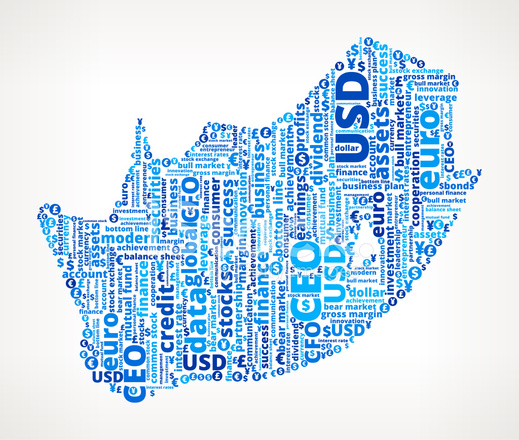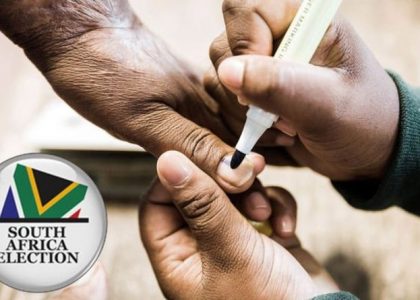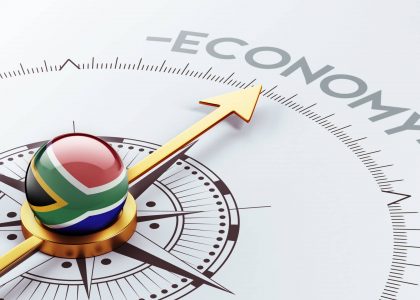Currency manipulation is a controversial practice which typically involves the deliberate intervention in currency markets by governments, central banks, and commercial banks to artificially lower or raise the value of their currency. This manipulation can significantly affect a country’s economy, trade relationships, and the job market. In recent years, South Africa has been grappling with the effects of currency manipulation, as several banks, including Standard Chartered, have been found guilty of engaging in this unethical conduct.
This article will explore the concept of currency manipulation, its impact on South Africa’s economy, and the measures needed to address this issue.
The Why and How of Currency Manipulation
Let us delve into the how and the why of currency manipulation. When it comes to banking, the “why” is easy- it is always about profits. Profits can come in the form of increased investment returns as well as increased offering of derivative products that offer hedging opportunities to manage currency risk. Furthermore, Currency manipulations can affect interest rates and the monetary policy of the SARB which can afford banks the opportunity to adjust their lending and investment strategies accordingly.
The “how” is typically done by selling or buying large quantities of foreign currency, such as the US Dollar, to weaken or strengthen the South African Rand (ZAR). The aim is to gain an unfair competitive advantage in international trade by making exports cheaper or more expensive.
Now it is time for the nitty gritty and how the manipulation is typically orchestrated. Firstly, just some background on the foreign exchange market. It is by far the largest financial market in the world with roughly $5.1 trillion flowing through it on average, per day according to the Bank for International Settlements. It is thus almost impossible to fix the price in a market as liquid and as large as this unless you become the market.
In the foreign exchange market, there are two quoted prices for a currency, the bid and the ask price. The bid price is the highest price at which the dealer (bank) will pay for the currency, i.e., buy from you, while the ask or offer is the lowest price at which the dealer is willing to sell currency to you. The spread is the difference between the ask and the bid price. For example, if the bid price for the USD/ZAR is R18.5200 and the offer price is R18.5250, the spread will then be 0.005. Manipulating this spread impacts the profits of the buyers and the sellers of the currency.
In a fair market, the bid and offer prices are determined by supply and demand. However, in this case, commercial banks typically collude by unfairly dividing the market, deciding which customers get to trade at certain prices or times. This is a financial crime. The colluding banks work in tandem to set bid and ask prices at levels that favour their positions.
The Standard Chartered Case
Standard Chartered, a multinational bank, recently admitted to manipulating currency trading in South Africa. The bank agreed to pay an administrative penalty of R42.7 million as part of a settlement agreement with the Competition Commission. This settlement followed an eight-year probe into the bank’s participation in an alleged cartel with other banks to manipulate the value of the rand.
The admission of guilt by Standard Chartered highlights the extent of currency manipulation in South Africa and the need for stricter regulations and penalties. The ruling African National Congress (ANC) has called for commercial lenders found guilty of currency manipulation to face criminal charges, emphasizing that a mere settlement is not sufficient to compensate for the harm caused to the economy.
The media statement by the Competition Commission stated that: “SCB participated in the manipulation of USD/ZAR currency pair by fixing bids; offers; bid-offer spreads; the spot exchange rate; and the exchange rate at the FIX. Further, SCB participated in dividing markets by allocating customers in terms of which one trader withholds or pulls his/her existing bid or offer from the market to allow the other trader to execute and complete his/her trade.”
The Consequences of Currency Manipulation
Currency manipulation has significant distortions on the South African economy. The current case refers specifically to the period between 2007 and 2013 and the distortions observed are supported by the USD/ZAR currency pair fluctuations depicted in the graph below. The graph depicts an average weakening of the rand during the period.
USD/ZAR Currency Pair Chart between 2007 and 2013
Observable Distortion: Impact on Balance of Trade
Simply defined, the Balance of Trade (BoT) is a measure of a country’s exports versus its imports. In simple terms, if a country sells more to other countries (exports) than it buys from them (imports), it has a favourable, balance of trade. If it buys more than it sells, the balance of trade is negative or unfavourable.
In summary, when South Africa’s currency depreciates, its export prices decrease, making its exports more competitive, while its import prices increase. Between 2007 and 2013, The BoT on average was unfavourable (trade deficit) as we imported more than we exported. Some basic economic consequences of trade deficits include reduced domestic production, job losses, and reduced economic growth. All these economic problems are synonymous with South Africa’s economic climate. The below depicts South Africa’s BoT from 2007 to 2013.
South Africa’s Balance of Trade
The Need for Stronger and Enforced Regulations
The questions each patriotic South African citizen is asking: “Where were the financial regulators, where was the South African Reserve Bank (SARB) whose sole mandate is to protect the value of the rand?”
The current case involving the alleged cartel of banks refers specifically to the period between 2007 and 2013 but the shady dealings of the rand’s manipulation can be traced back to the turn of the century. Barry Sergeant wrote a book titled “The Assault on the Rand: Kevin Wakeford and the Battle to Save a Currency”. When the rand collapsed from 7.60 to 13.84 to the US dollar in 2001, Kevin Wakeford blew the whistle, accusing three big corporates and one global bank of being party to manipulation in the currency markets. Upon blowing the whistle Wakeford was rewarded by being fired from his job as CEO of the South African Chamber of Business. He was ousted and called a “populist” by certain leaders in government.
There have been instances where issues of currency manipulation were raised publicly without much investigation from financial regulatory bodies like the SARB. The SARB whose primary mandate is to protect the value of the rand in the interest of balanced and sustainable growth, has done little to nothing when allegations of currency manipulations were raised. The SARB and the government are partially to blame as this has not yet triggered comprehensive corporate regulatory reforms. Ultimately, leading to this market manipulation behaviour to perpetuate.
While currency manipulation is already prohibited for members of the International Monetary Fund and the World Trade Organisation, stricter regulations and penalties are necessary to deter and punish offenders. The current penalties, such as the R42.7 million settlement with Standard Chartered, are often seen as inadequate to compensate for the damage caused to the economy.
Sources: Bloomberg1 Bloomberg2 IoL





